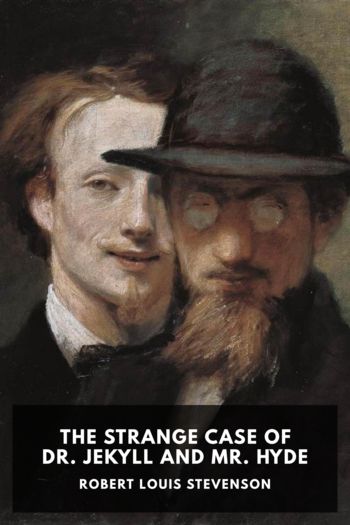Catriona by Robert Louis Stevenson (read with me .TXT) 📕

- Author: Robert Louis Stevenson
Book online «Catriona by Robert Louis Stevenson (read with me .TXT) 📕». Author Robert Louis Stevenson
“Saxpence had better take his broth with us, Catrine,” says she. “Run and tell the lasses.”
And for the little while we were alone was at a good deal of pains to flatter me; always cleverly, always with the appearance of a banter, still calling me Saxpence, but with such a turn that should rather uplift me in my own opinion. When Catriona returned the design became if possible more obvious, and she showed off the girl’s advantages like a horse-couper with a horse. My face flamed that she should think me so obtuse. Now I would fancy the girl was being innocently made a show of, and then I could have beaten the old carline wife with a cudgel; and now, that perhaps these two had set their heads together to entrap me, and at that I sat and gloomed betwixt them like the very image of ill-will. At last the matchmaker had a better device, which was to leave the pair of us alone. When my suspicions are anyway roused it is sometimes a little the wrong side of easy to allay them. But though I knew what breed she was of, and that was a breed of thieves, I could never look in Catriona’s face and disbelieve her.
“I must not ask?” says she, eagerly, the same moment we were left alone.
“Ah, but today I can talk with a free conscience,” I replied. “I am lightened of my pledge, and indeed (after what has come and gone since morning) I would not have renewed it were it asked.”
“Tell me,” she said. “My cousin will not be so long.”
So I told her the tale of the lieutenant from the first step to the last of it, making it as mirthful as I could, and, indeed, there was matter of mirth in that absurdity.
“And I think you will be as little fitted for the rudas men as for the pretty ladies, after all!” says she, when I had done. “But what was your father that he could not learn you to draw the sword? It is most ungentle; I have not heard the match of that in anyone.”
“It is most misconvenient at least,” said I; “and I think my father (honest man!) must have been woolgathering to learn me Latin in the place of it. But you see I do the best I can, and just stand up like Lot’s wife and let them hammer at me.”
“Do you know what makes me smile?” said she. “Well, it is this. I am made this way, that I should have been a man child. In my own thoughts it is so I am always; and I go on telling myself about this thing that is to befall and that. Then it comes to the place of the fighting, and it comes over me that I am only a girl at all events, and cannot hold a sword or give one good blow; and then I have to twist my story round about, so that the fighting is to stop, and yet me have the best of it, just like you and the lieutenant; and I am the boy that makes the fine speeches all through, like Mr. David Balfour.”
“You are a bloodthirsty maid,” said I.
“Well, I know it is good to sew and spin, and to make samplers,” she said, “but if you were to do nothing else in the great world, I think you will say yourself it is a driech business; and it is not that I want to kill, I think. Did ever you kill anyone?”
“That I have, as it chances. Two, no less, and me still a lad that should be at the college,” said I. “But yet, in the look-back, I take no shame for it.”
“But how did you feel, then—after it?” she asked.
“ ’Deed, I sat down and grat like a bairn,” said I.
“I know that, too,” she cried. “I feel where these tears should come from. And at any rate, I would not wish to kill, only to be Catherine Douglas that put her arm through the staples of the bolt, where it was broken. That is my chief hero. Would you not love to die so—for your king?” she asked.
“Troth,” said I, “my affection for my king, God bless the puggy face of him, is under more control; and I thought I saw death so near to me this day already, that I am rather taken up with the notion of living.”
“Right,” she said, “the right mind of a man! Only you must learn arms; I would not like to have a friend that cannot strike. But it will not have been with the sword that you killed these two?”
“Indeed, no,” said I, “but with a pair of pistols. And a fortunate thing it was the men were so near-hand to me, for I am about as clever with the pistols as I am with the sword.”
So then she drew from me the story of our battle in the brig, which I had omitted in my first account of my affairs.
“Yes,” said she, “you are brave. And your friend, I admire and love him.”
“Well, and I think anyone would!” said I. “He has his faults like other folk; but he is brave and staunch and kind, God bless him! That will be a strange day when I forget Alan.” And the thought of him, and that it was





Comments (0)